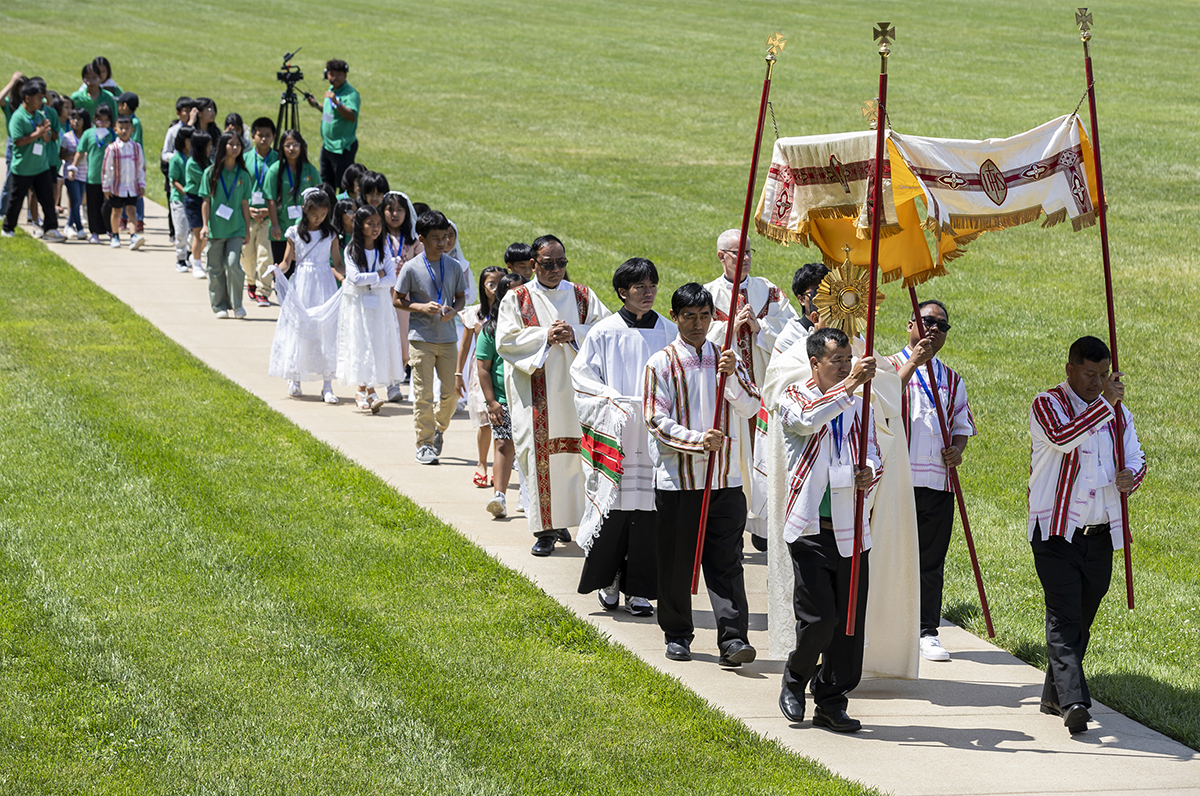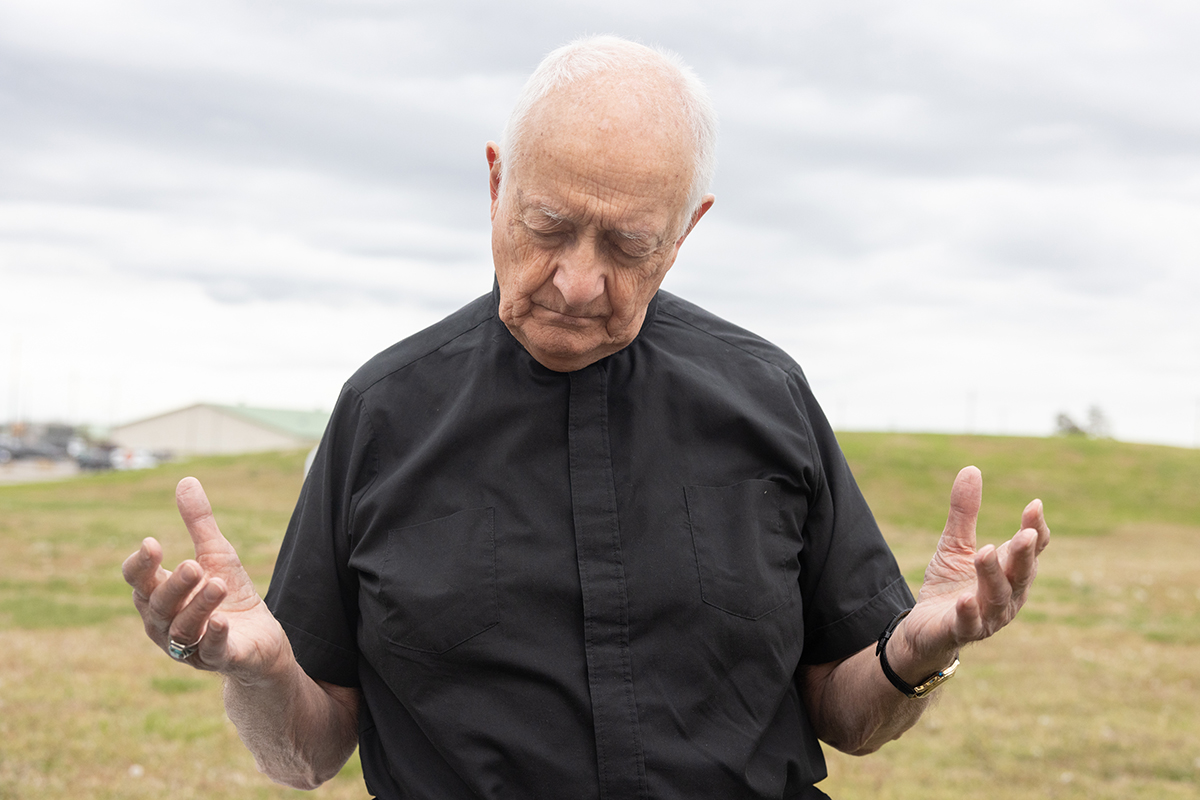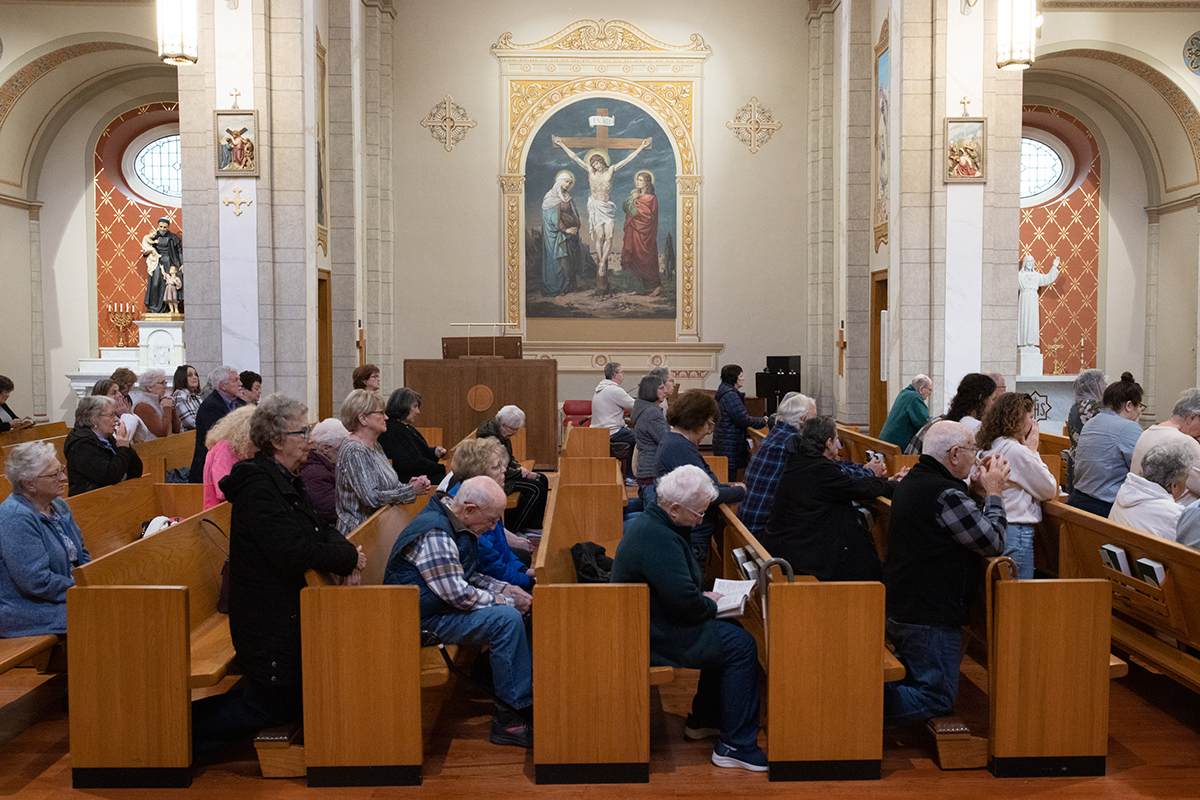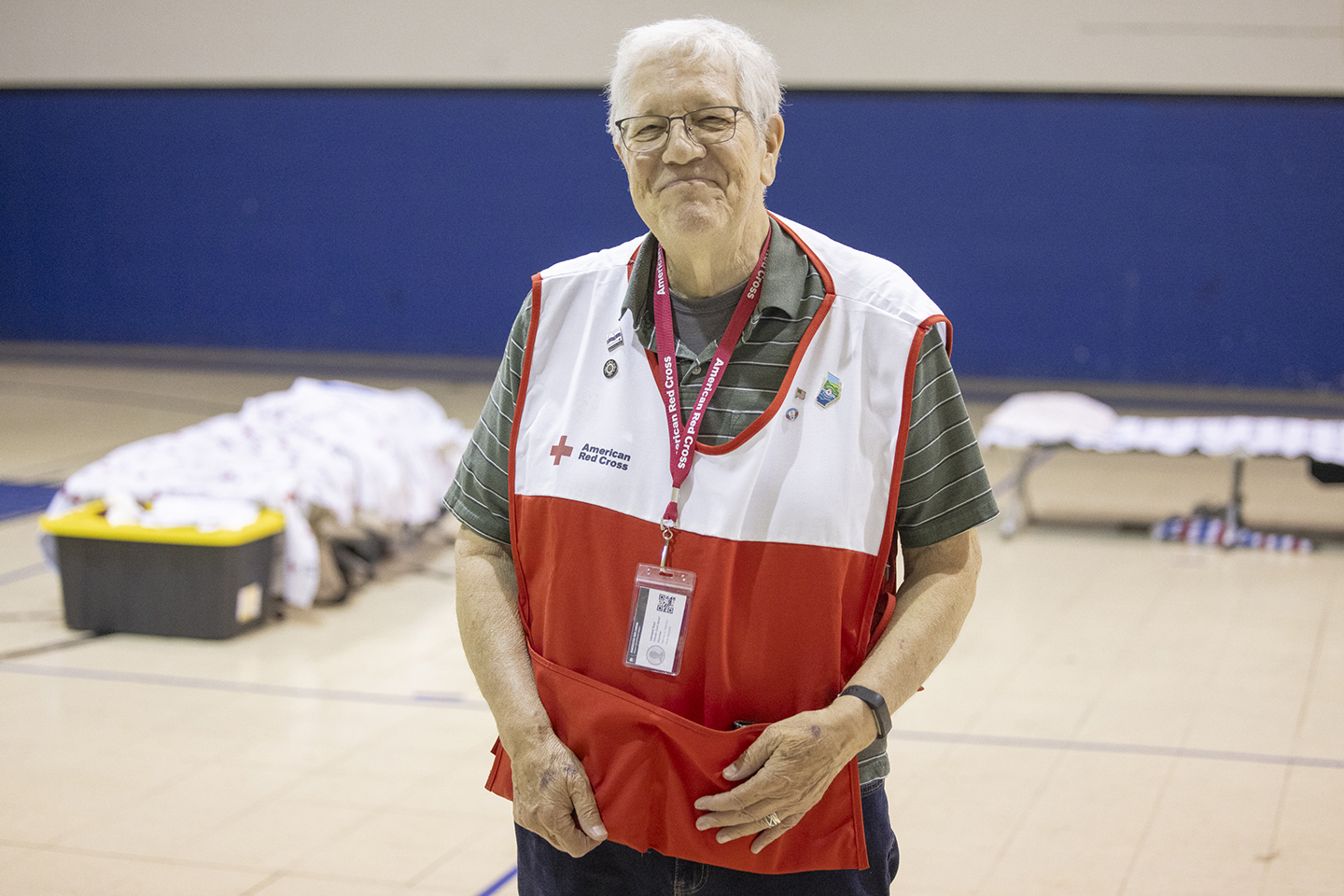Archdiocesan news
Mediation process touted in sex-abuse settlements
From August 2004: The Archdiocese of St. Louis settled 18 of 21 civil cases of sexual abuse in a mediation process
Submitted on November 9, 2018
The Archdiocese of St. Louis has settled 18 of 21 civil cases of sexual abuse in a mediation process. The settlements total $2,036,800.
There are 13 other cases of clergy abuse of minors filed against the archdiocese that have yet to be settled and are not part of the mediation, said Bernard Huger, archdiocesan attorney. Most of these cases will go to mediation, he said.
In addition, the archdiocese is working on about a half dozen other cases where the victims have not filed lawsuits, Huger said.
A statement by the archdiocese noted that all persons who have brought their complaints to the mediation process have been encouraged to bring their allegations to the police or prosecuting attorney if they choose to pursue criminal prosecution.
The cases that were settled involved Fathers Michael McGrath, Romano Ferraro, Robert Yim, Bryan Kuchar and Alexander Anderson and the late Sister Judith Fischer.
The mediation process, which began in February, has been good for everyone, Huger said. “We’re proud of what we have been able to do to help” the victims, he said.
The mediation process was announced in November as an initiative to pastorally respond to anyone who has been a victim. At that time, Auxiliary Bishop Joseph Naumann, now the co-adjutor archbishop of Kansas City, Kan., said that the archdiocese has focused on providing the help that is needed for people to rebuild their lives rather than on large settlements.
Having a neutral party as mediator is cited as a reason the process is valued.
“Rather than go into a public courthouse and present their case, which is very painful … they have an avenue to use at a completely neutral office,” Huger said.
Attorney Michael Geigerman has served as mediator with assistance on a couple cases by Brendan Ryan, a retired judge. They were picked by both sides in the cases.
Approximately 37 percent of the cost of the settlement is being covered by insurance, Huger said. The rest of the money comes from general funds of the archdiocese generated from gains on investments and from past real estate sales.
The mediation takes place in the offices of the U.S. Arbitration and Mediation Services, which provided the neutral mediator.
The process involves some members of the archdiocese’s Gennesaret Committee, which includes people with specialties in the mental health professions among others, to help assess from the victims or their therapist what their needs might be.
The goal is to provide a means for healing for those whose allegations are found to be credible, Huger said.
The victims, usually accompanied by family members, therapists or attorneys, work with the archdiocese for an acceptable settlement, Huger said.
“It’s a very intense process,” he said, noting that he recognizes even in the private offices it is often difficult for the victims to tell the story of their abuse. “But we do think this is easier for victims. They tell their story once, and at the end of the day it’s resolved.”
In a few instances, he noted, the victims take a week or so to consider the offer.
“I have the highest respect for the committee members, all volunteers, who give an entire day to go through this,” Huger said.
“We don’t feel the archdiocese has actual responsibility, but since the priests don’t have money and there is injury, somebody has to help the people or no one will. So the archdiocese steps up.”
The diocese also has agreed to provide education on recognizing child sex abuse to archdiocesan employees and to children. It also was agreed to post the state’s hotline in all schools and in some cases to write a letter of apology.
The “Protecting God’s Children” training program has been presented to some 30,000 employees and volunteers, and a program for children will be operating soon.
The group Survivors Network of Those Abused by Priests (SNAP) held a news conference Aug. 26 urging Church officials to go beyond the civil settlements and aggressively help find witnesses and victims who could aid in criminal prosecution of abusive clergy. The group also encouraged police and prosecutors to pursue charges.
“Settlements can help provide healing and closure for victims. But settlements alone do not safeguard children,” said David Clohessy, national director of SNAP.
“We’d like to see Archbishop (Raymond) Burke go further and urge parishioners and staff to honor their civil obligations and call police if they’ve experienced, witnessed or suspected abuse by these men.”
Huger noted that the archdiocese’s policies on preventing and reporting sexual abuse of minors is on the archdiocesan Web site www.archstl.org.
Anyone who has been abused or whose family member has been abused is encouraged to bring that information to the archdiocese so that help can be received and to civil authorities so they can take appropriate action, he said.
Huger said he hopes the settlement of 18 cases is a step toward a future where there will be few cases pending. “I see there are fewer cases coming forward, and we are settling quite a few. We definitely are moving toward that.”
The case against Father Anderson was ruled not credible by the archdiocesan committee, but it was agreed to make payments to his accuser’s therapists because of help that he needs. The payments are $8,000 for past therapy and $14,500 set aside for future therapy.







